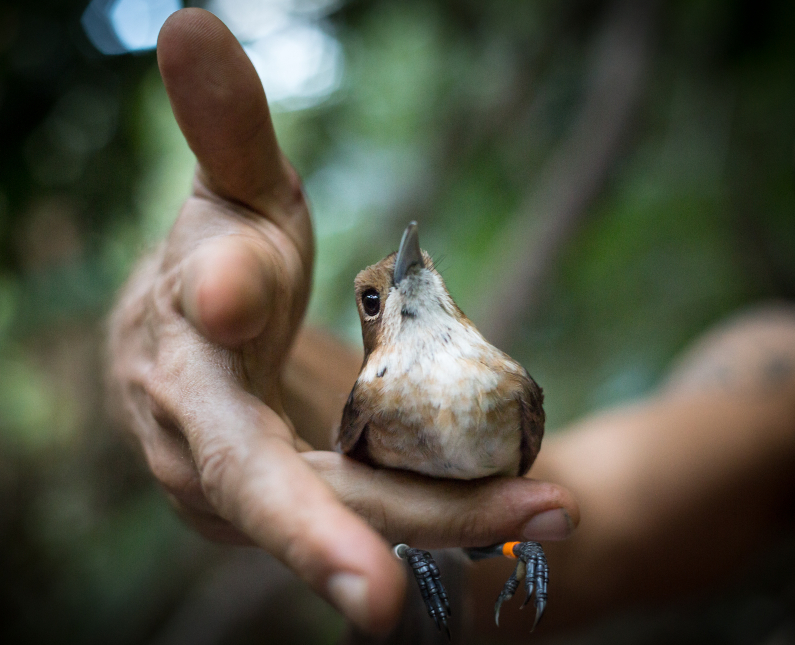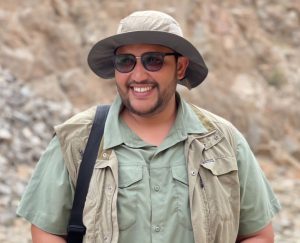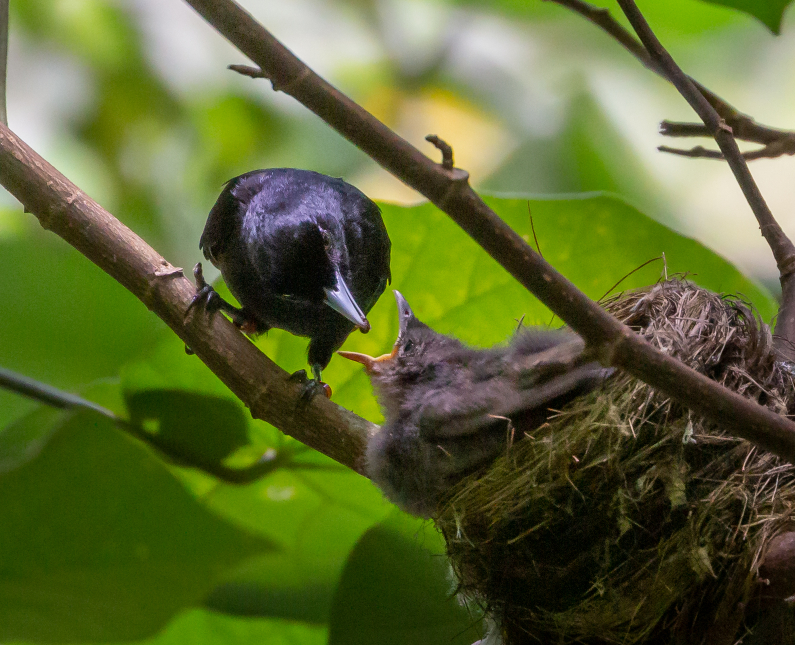The Mohamed bin Zayed Species Conservation Fund (MBZ Fund) reaffirms its commitment to bird conservation, recognising the pivotal role they play in ecological balance and the overall well-being of ecosystems. Birds, as indicators of environmental health, are vital pollinators, nutrient recyclers, and natural pest controllers, contributing to a sustainable and thriving planet.
“Over the course of the last 15 years, the MBZ Fund has provided 411 grants totalling over $4 to support the conservation of threatened bird species all around the world. Birds are a very varied group of species (from sparrows to penguins to ostriches and falcons), which play a very broad range of roles in protecting our ecosystems and the health of our planet. They help by disbursing seeds in forests, they provide cleaning services in all habitats around the world and provide us with joy through their colours and voices. Sadly, many birds are threatened with extinction, especially those which occur on islands, or have lost the ability to fly, as well as the raptor birds, such as vultures and eagles. We must work together to conserve these wonderful creatures, by protecting them from the many threats they face.” Acting Director General Mohamed bin Zayed Species Conservation Fund.
This commitment is rooted in the vision of our founder and chairman, His Highness Sheikh Mohamed bin Zayed Al Nayhan, whose passion has driven significant conservation efforts for the falcon and houbara bustard within the UAE and on the international stage.
Another notable success story is the Red-fronted Macaw conservation project led by Asociación Armonía in Bolivia. With a population of around 1,200 individuals and facing threats from habitat destruction, poaching and illegal pet trade, the Red-fronted Macaw is critically endangered. MBZF’s support enables Asociación Armonía to protect the macaws in four regions, by focusing on habitat preservation and incorporating community involvement.
The Red-fronted Macaw Community Reserve, a key reproductive site, boasts at least 20 breeding pairs annually. Critically, during the pandemic, MBZF continued funding to support community tourism and habitat restoration. Armonía’s innovative approach includes wooden nestboxes, habitat restoration efforts, and an agroforestry system, creating a blueprint for successful conservation with a tourism angle benefiting local communities.
Beyond species conservation, the Fund acknowledges and celebrates individuals who passionately dedicate themselves to the cause of protecting these precious species.
Locally, the MBZF supports Sami Majeed and his drive to protect the critically endangered Omani Owl. As Project leader Sami and his team conduct night surveys (around 200km per night) within the Wadi Wurayah National Park, Fujairah, using acoustic and camera surveys to detect this elusive species.
Sami’s conservation journey began in 2014. As a park ranger he spent a lot of time in the field and shadowing experienced researchers, learning the ropes, and soaking in every bit of knowledge. Over time, he developed a deep passion for owls and began contributing actively to the cause. In 2020 he managed to capture the first daytime record of Arabian Spotted Eagle Owl in UAE and in 2021 was able to get the only visual records of the Omani Owl in UAE.
“The impact of the MBZF funding goes beyond the equipment. It reignited my connection to these incredible creatures and reaffirmed my commitment to their well-being. This grant has given me the means to amplify my efforts, and I can’t express how much that means to me.” – Sami Ullah Majeed
And when dedicated conservationists encounter a distinctive species, a magical connection unfolds as in the case with Fatu Hiva monarch in French Polynesia.
A dedicated team in the Marquesas Islands is fighting to prevent the Fatu Hiva monarch (Pomarea whitneyi), a critically endangered flycatcher native to the region from going extinct. With less than 20 individuals and only 5 breeding pairs remaining, the species has faced catastrophic decline since the 90s and is listed as Critically Endangered by the IUCN Red List.
The Ornithological Society of Polynesia, supported by the Mohamed bin Zayed Species Conservation Fund, is spearheading an ambitious initiative to combat these threats through anti-malaria management and supplementary feeding programs.
Strategically placed feeders around nests, are topped up at least three times a week to enhance fledgling fitness. This innovative approach aims to reduce the stress peak during the emancipation period, vital for fledglings to learn independent foraging. Camera traps have recorded every fledgling born in 2022 utilising the feeders, validating the success of this strategy.
Additionally, the grant facilitated the purchase of mosquito traps around active nests during incubation since newborns are more susceptible to malaria. Adults exhibit higher resistance to malaria, ensuring a better survival rate compared to fledglings contracting the disease. Currently, five gravid traps are operational, reducing mosquito density.
Changing the batteries every 3 days and trapping liquid once a week is physically demanding for a small project team, but hopefully these efforts will bear fruit in the near future.
These stories represent just a glimpse of the numerous success stories actively championed by the Mohamed bin Zayed Species Conservation Fund. It remains hopeful that future generations can witness and appreciate the beauty of birds in their natural habitats, moving beyond books to experiential learning.





